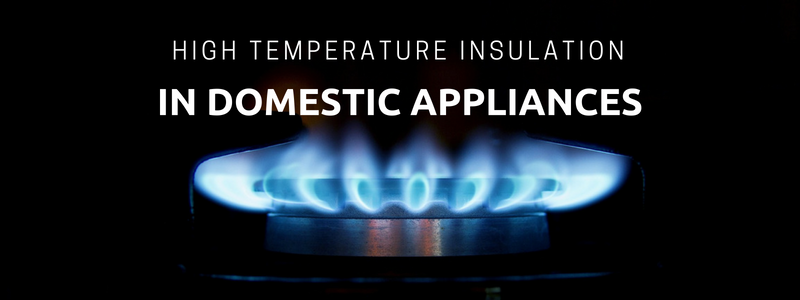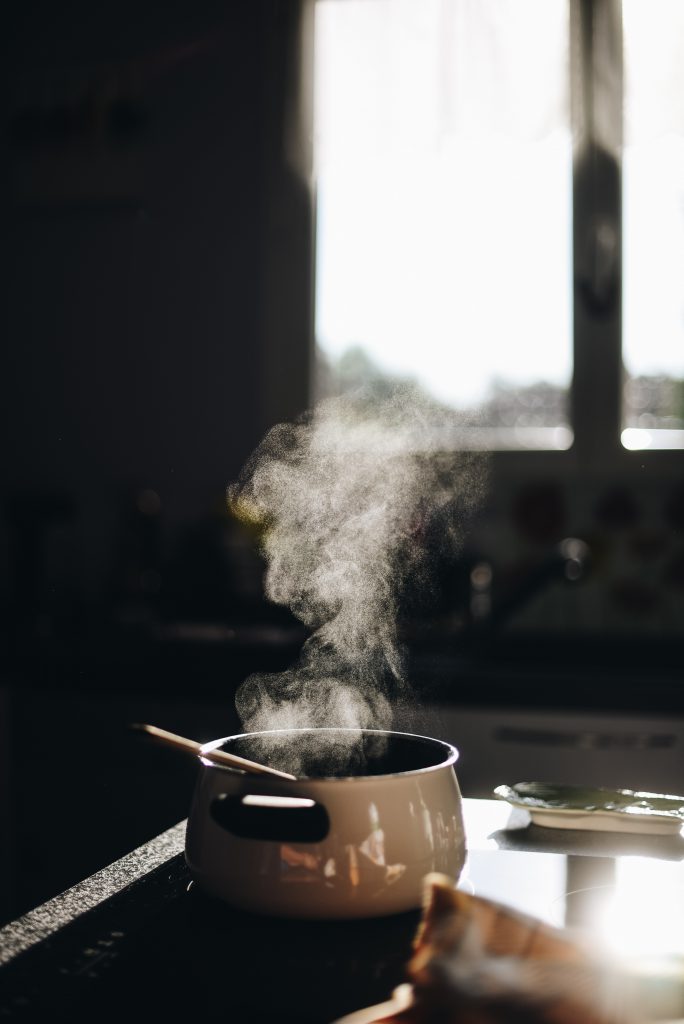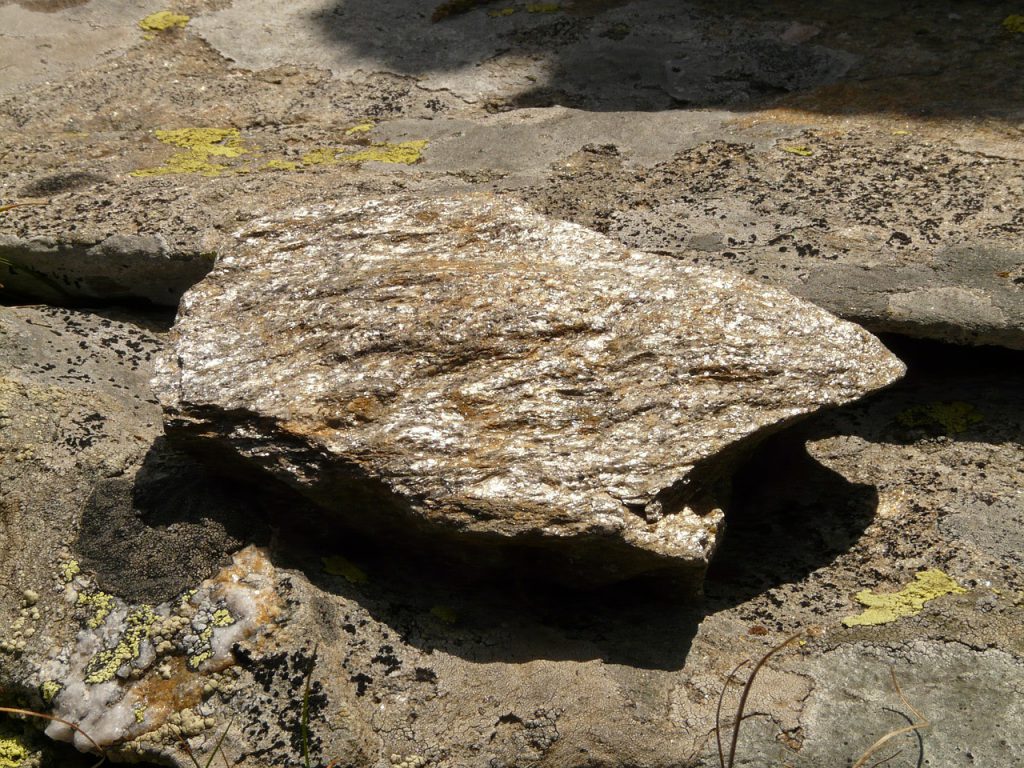
High Temperature Insulation-Domestic Appliance Safety
High temperature insulation touches people’s everyday lives. While we serve specialist sectors and industries, such as foundry and steel, automotive and aerospace, we also provide insulation solutions for products that are part of the fabric of how we live today. These products include fan-assisted and convection heaters, microwave ovens, toasters, hairdryers and other white goods.
Consumer appliances are increasingly sophisticated in the age of the Internet of Things, but they must always meet stringent safety standards to be acceptable, and high temperature insulation plays a key role in ensuring both their safety and functionality.
Manufacturers of white goods are operating in a fiercely competitive marketplace where they must reconcile maintaining affordability while offering significant refinements and better end-products for the consumer.
We support these manufacturers, and contribute to the continuing safety of domestic appliances with versatile solutions that combine adaptable high temperature insulation with thermal conductivity.
Efficiency and Performance in Cooking Appliances
For cooking appliances, we apply thermal insulation mainly to prevent heat loss through conduction. However, insulation is also vital for more than energy efficiency. It is also important to prevent heat transfer to other surfaces, thereby ensuring the safety of the appliance.
From the oven manufacturers’ perspective, they are under constant pressure to deliver products that heat quicker and more accurately. Ovens and cookers, therefore, keep getting hotter while also containing more sophisticated and sensitive components for thermal control and accuracy.

The focus is therefore on both safety and performance.
Mica-based products are ideal for meeting these kinds of insulation requirements. Elmelin’s high temperature insulation range includes mica sheets, mica tubes, and a wide selection of mica components – all of which are flexible and supremely adaptable.
The low thermal conductivity of mica means it is very good at restricting the flow of energy from hot to cold, ensuring the lowest energy loss. At the same time, its low material density makes it attractive for engineers looking to improve an appliances thermal profile without any significant loss of capacity.
Therefore, we’re helping to position our clients’ products at the forefront of domestic appliance cooking technology, improving product lifespans, minimising carbon footprints and satisfying consumer demand.
Ensuring Hairdryer Safety Through High Temperature Insulation
The hairdryer is pretty much a home staple when it comes to everyday consumer appliances. Hairdryers produce heat in the same way as toasters do. This is by passing an electric current through a wire. The heating element is made of an alloy of nickel and chromium, known as nichrome. One of its key properties is that it will not rust at high temperatures, unlike copper wire.
For it to function safely within a hairdryer, alongside other components, the heating element must be sufficiently insulated, shielding it from the other parts of the hairdryer. Therefore, the nichrome coil is wrapped around an insulating board, and this board is made from mica.
Mica’s natural mineral properties mean that it can withstand the high levels of heat that the heating element will generate once the hairdryer is in use.
All electrical appliances have the potential to be dangerous, especially if they are in any way misused. Hairdryers have improved in quality and efficiency but their fundamental design principles remain pretty much the same.
What we provide with mica is the means of ensuring that they can continue to develop and offer superior functionality while staying safe for the consumer to use in the home.

Supporting Dielectric Heating for Microwaves
Microwave ovens were once an elite addition to the average kitchen, but modern makes combine cost-effectiveness with advanced manufacturing efficiency.
However, as with other consumer appliances, the fundamental principles of how microwave ovens heat up remain unchanged. Microwave heating is dielectric heating. This means subjecting the interior of the oven to a very high frequency electromagnetic field.
The high temperatures this process generates, however, must be contained, to prevent energy loss, and to protect the appliance. Mica sheets are ideal for this form of high temperature insulation, due to mica’s thinness, flexibility and excellent dielectric properties.
This is a natural property unique to mica when freshly cleaved. Once processed, mica sheet is very thin but very effective as a microwave insulation material.
Mica Insulation for Heaters in the Home
Various forms of home heating come as commonplace consumer appliances, including fan heaters and convection heaters.
Both rely on electric heating elements for how they function. Fan heaters use a fan to pass air over their heating elements. Convection heaters, on the other hand, use radiant heat, by forcing cold air into the heater, where it then moves across the heating element.

In both kinds of appliance, insulation is key to protect the components, the body of the device and, ultimately, the user.
As with hairdryers, the heating element will be protected by a mica insulating board. This is of a carefully selected grade and thickness to ensure effective high temperature insulation, drawing on mica’s dielectric strength and advanced thermal conductivity.
What the Future Holds for High Temperature Insulation
Customers have rising expectations around performance, affordability, safety and, increasingly, energy efficiency of consumer appliances.
Design and technology continue to drive this market, alongside an increased awareness of customers about issues to do with the environment and the potential carbon footprint that appliances leave behind.
Manufacturers of consumer appliances therefore must keep developing their products to meet these ever-rising standards, which is where the support of high temperature insulation solutions is so critical.
In the same way that manufacturers cannot afford to stand still in this market and consumer-driven economy, so we continue to innovate, refine and apply new solutions based on sound principles of thermal conductivity and protection to support their efforts.
Can We Support Your Product?
We offer a range of high temperature insulation products and bespoke solutions for different applications. Please call us on +44 20 8520 2248, or email sales@elmelin.com. You can also complete our enquiry form and we’ll get back to you as soon as possible.
